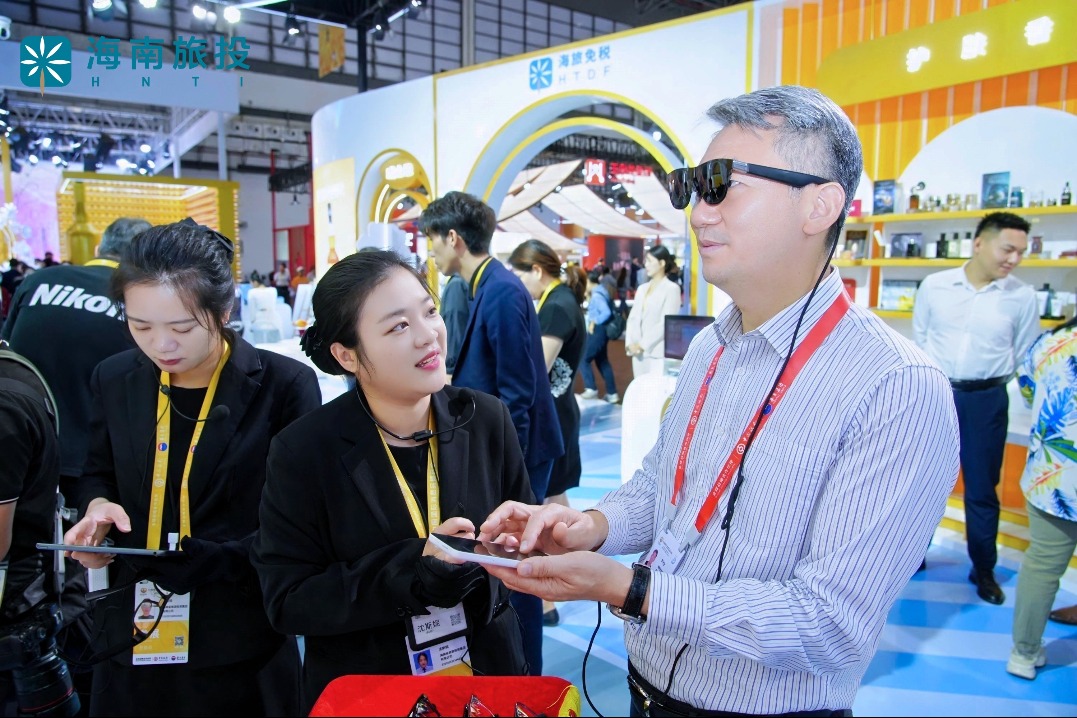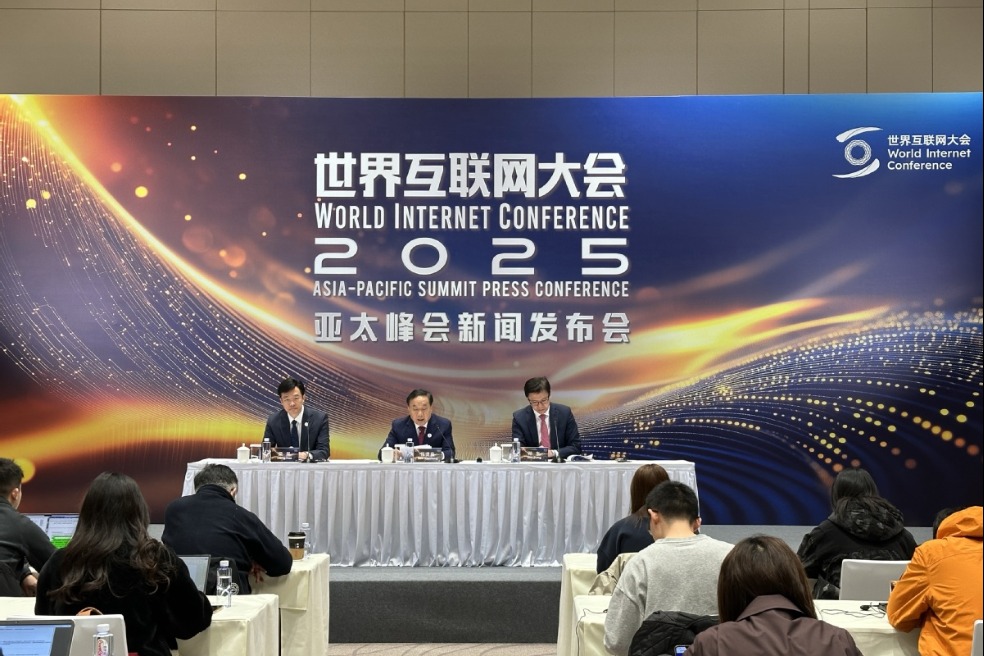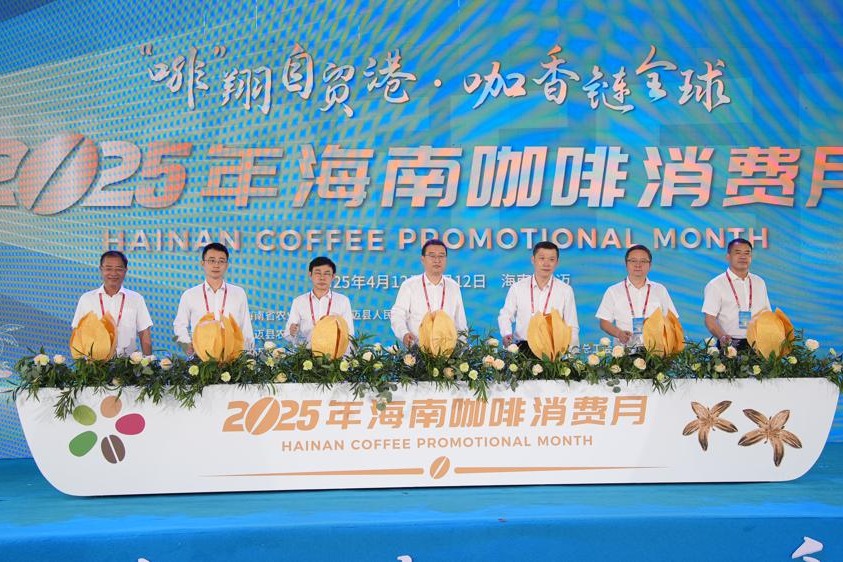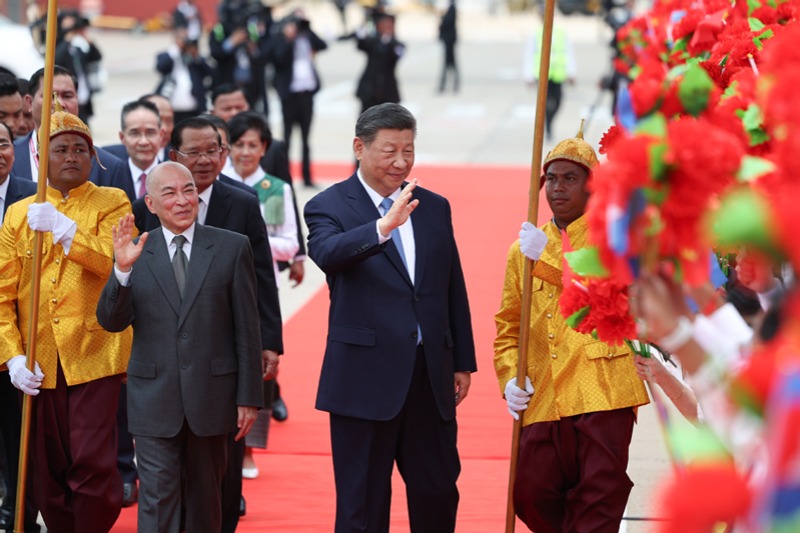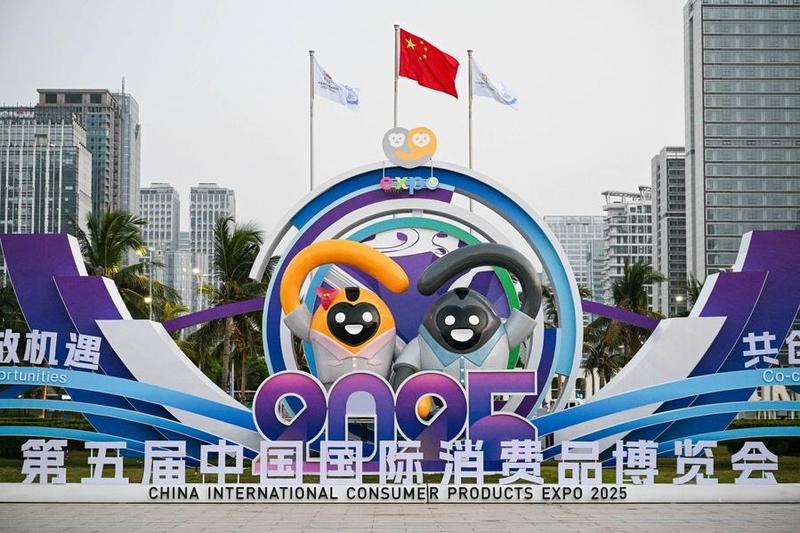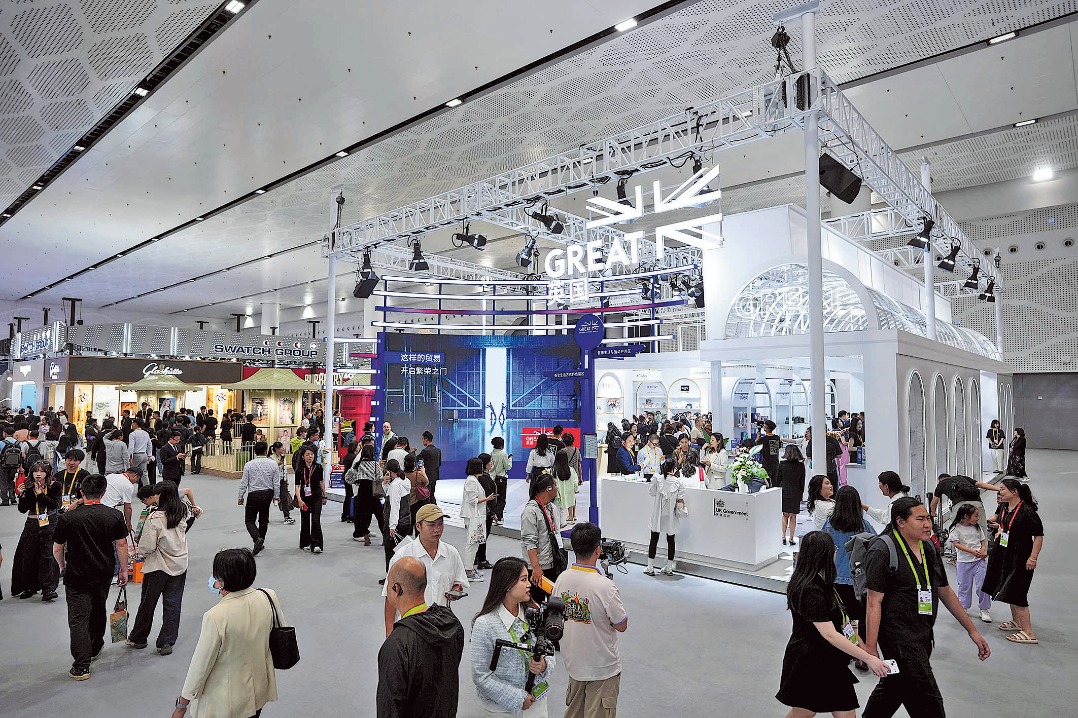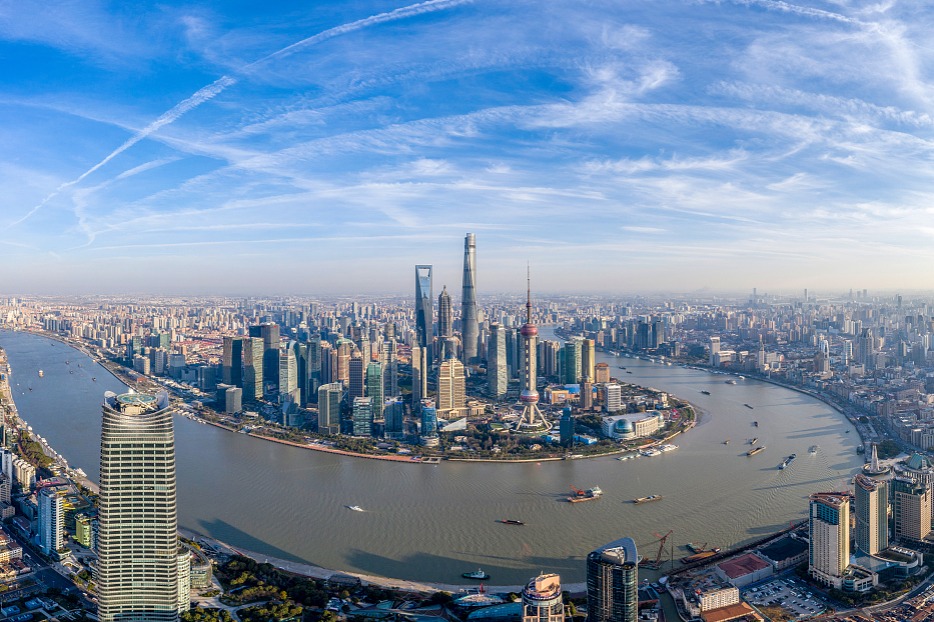Chinese-Arab cooperation embraces new opportunities amid pandemic

NEW OPPORTUNITIES
In line with the current needs of the two sides, the digital economy and clean energy have become the focus of this year's event, creating new opportunities and space for further cooperation.
In the UAE's economic recovery plan announced in 2020, the UAE government said it will encourage investment in the digital economy in the long term, focusing on cutting-edge technologies such as 5G and AI in order to promote digital transformation and economic recovery.
A report on 2021 Chinese-Arab trade and economic cooperation released at the expo predicts Arab states will have an increased demand for information infrastructure for years.
Some Arab countries lack the capabilities to build communication networks, which means huge market opportunities for Chinese enterprises that are experienced in engineering design and construction and have strong capabilities to serve overseas markets.
Chinese telecommunication giant Huawei has helped some Arab countries build infrastructure such as 5G networks and national AI centers, and apply digital technology to customs and ports to facilitate cross-border trade.
Tunisian President Kais Saied on Thursday hailed the "fruitful" cooperation between Tunisia and China in recent years while praising Chinese companies for contributing to Tunisia's digital economy. He also highlighted the ample opportunities and promising prospects for the two countries to diversify and strengthen bilateral ties, particularly in the education, transport and health sectors.
As carbon neutrality is a global goal, new energy has become a potential field for cooperation between the two sides.
"Now, with the international consensus that we must act to mitigate climate change, scaling up renewable energy adoption has become a global trend," said Awaidha Murshed Ali Murshed Almarar, director of the Energy Authority of Abu Dhabi, the United Arab Emirates.
"Today's forum is an important event to explore new opportunities for cooperation on zero and low-carbon energy technologies such as hydrogen and CCUS (carbon capture, utilization and storage) that match our energy transition goals, and build resilience into our energy industry and, furthermore, support our quests for a sustainable and peaceful future for all."
Chinese energy firms have been engaged in the energy transitions of Arab states. Shanghai Electric took part in constructing a photovoltaic and photothermal hybrid power station in Dubai, currently the largest of its kind worldwide.
"China is willing to help Arab states speed up their transitions toward low-carbon energy. We will help them develop and utilize wind and solar energy resources based on local conditions," said Zhang Jianhua, head of China's National Energy Administration.


















